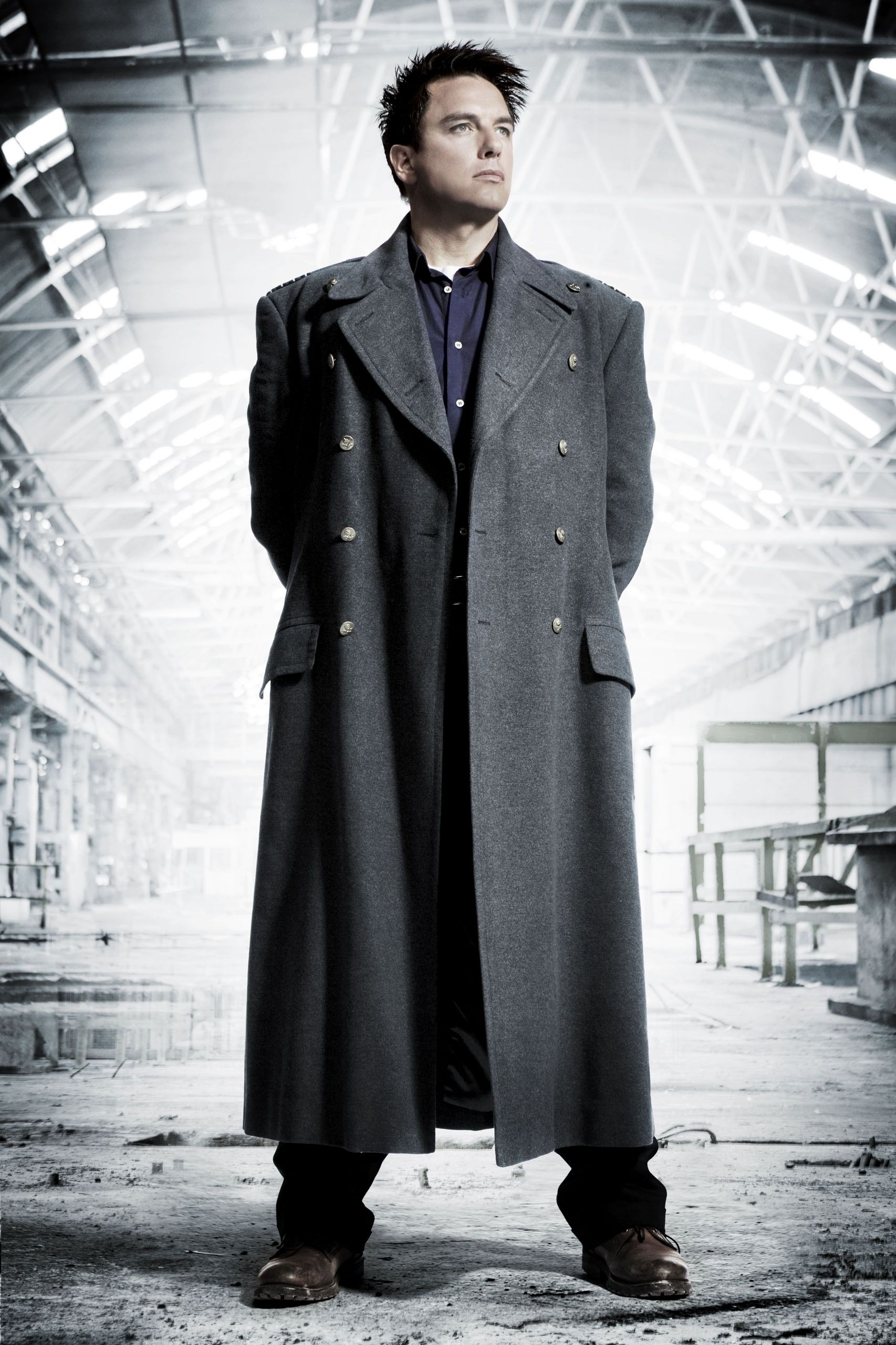I’m a Whovian, which means that I’m a member
of the Doctor Who fandom. Doctor Who, the smash BBC hit that was named the longest-running science fiction
television show by Guinness World Records, was revived in 2005 after over a
decade of hiatus. Throughout the classic show and modern revival, the Doctor
travels in his TARDIS spaceship through time and space with companions, saving
small cities as well as the entire universe from disaster. Many feminist
Whovians have analyzed the Doctor and his companions’ representations of
gender, race, and sexuality; in this series, I give some of my own
interpretations.
Captain Jack Harness, portrayed by John Barrowman, is an
immortal time traveler from the 51st century. He joins the Doctor early in the
modern series, making sporadic appearances in Series 1, 3, and 4.
From the first episode he is featured, Jack is unabashedly
queer, flirting with humans and aliens of any and all genders and sexualities.
He even shares a kiss with both the Doctor and Rose in the Series 1 finale “The
Parting of the Ways.” Considering the episode’s airdate of 2005, the inclusion
of such a controversial scene was risky, particularly for a show whose future
was uncertain in the first place.
Doctor Who writer Russell
T. Davies is largely the pioneer behind Jack’s innovative representation of
queerness. Davies has been praised for writing Jack’s sexual orientation into
the series in such a casual way, as if it was not groundbreaking for a
non-heterosexual character to be portrayed as a good guy or for two men to
share an on-screen kiss. At one point in the show, the Doctor implies that
pansexuality is characteristic of everyone from 51st century. Through this
vision of the future as a queer utopia and his more throwaway attitude towards
Jack’s sexuality, Davies normalizes non-heterosexuality and makes it
unremarkable, rather than something that has to be celebrated or condemned.
Certainly, Jack’s sexuality has garnered criticism, leading some
fans to claim that Davies wrote Jack as part of a so-called gay agenda.
Interestingly, other critics take the opposite tack, complaining that Jack, and
Doctor Who in general, is not sufficiently gay. Davies is dismissive of
all of these critics; in the book Triumph
of a Time Lord, academic Matt Hills quotes him as saying that “to get hung
up on it [Jack’s sexuality] is almost too sad for words.”
Despite – or perhaps because of – his sexuality, fans are extremely
positive about Jack. Academics and Doctor
Who aficionados like Matt Hills, Shoshana Magnet and Robert Smith?, and Tom
Spilsbury have praised Jack for portraying a positive queer role model that
counters homophobic prejudices in addition to challenging allies’ preconceived
notions of what queerness is.
Jack is probably my favorite guy companion of the Doctor’s. His
constant flirtations often provide comic relief, and I feel that the plots he’s
involved in are extremely well-written and intelligently crafted. (I mean, Face
of Boe? I did not see that coming. That was awesome.) I appreciate that nobody
ever questions whether Jack is really
pansexual (“are you sure you’re not just gay?” “wait, so are you gay or
straight?”), and that nobody ever discriminates against him or treats him
differently because of his sexuality. I also like that he’s shown as masculine,
since it contests perceptions of queer men as effeminate.
I don’t think it’s possible to question the feminist merits of
Captain Jack. Since he is a time traveler from three thousand years in the future,
he allows viewers to imagine a world where sexuality is mundane and homophobia
is nonexistent. His positive portrayal of queerness on a television show in the
first decade of the 21st century, he had a practical impact on
viewers’ perceptions of alternative sexualities. Basically, I think Jack is
made of awesome, and I don’t understand people who feel otherwise.

No comments:
Post a Comment